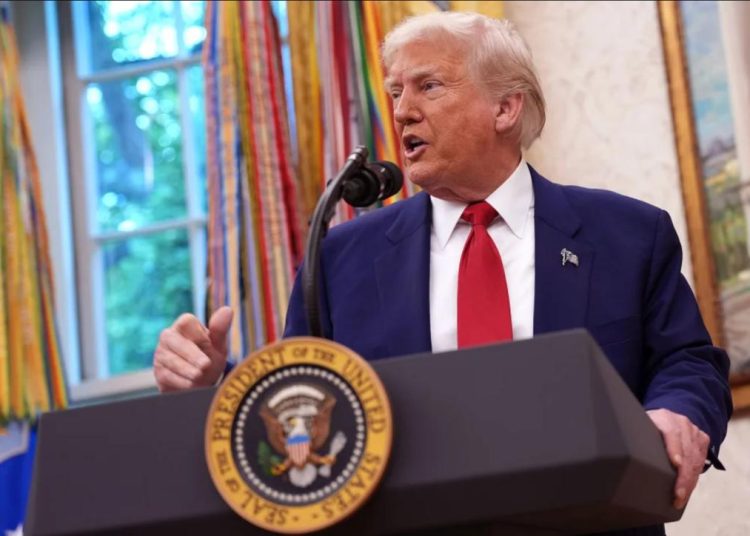Claims emanating from Washington and some Western media outlets suggesting a breakthrough is “very close” in nuclear talks between Iran and the United States have been met with rejection by Iranian sources. Speaking to Iran Nuances, these sources characterized the recent U.S. statements as lacking a practical foundation and being merely part of a pressure tactic.
Reports, including one from CNN citing U.S. President Donald Trump and unnamed sources, claim that a “broad agreement” is “closing in” and is potentially achievable in the next round of talks. However, Iranian sources familiar with the negotiation process have not confirmed these optimistic assessments.
These sources contend that the recent statements from American officials, including President Trump’s remarks, are not based on the reality of negotiation progress but are instead part of a deliberate “psychological game and media hype.” According to these sources, “These statements are aimed at demanding maximum and unusual concessions from Tehran” by raising expectations about the talks among the Iranian public to pressure the Iranian negotiators at the table. While emphasizing the Iranian delegation’s seriousness in the talks, the sources stressed that the team would under no circumstances succumb to pressure from the other side.
These sources also emphasize that “fundamentally, Iran’s most important concerns and demands regarding the lifting of sanctions have not yet been clearly addressed by the American side.” Furthermore, these sources point out that the American side “continues to impose new sanctions,” a contradictory approach to optimistic statements about being close to an agreement.
Iranian observers believe that by presenting an overly optimistic picture of the talks’ progress, the Americans are engaging in a classic “blame game.” If the negotiations do not conclude as quickly as U.S. officials have suggested, this tactic aims to shift responsibility for any delays or lack of a quick agreement onto Iran in the eyes of both the international community and potentially the Iranian public.
From Tehran’s perspective, the focus must remain on addressing the substantive technical and legal complexities of sanctions removal and the nuclear program through serious, patient negotiation, rather than relying on spinning and attempts to manipulate public perception and pressure the negotiating team.






